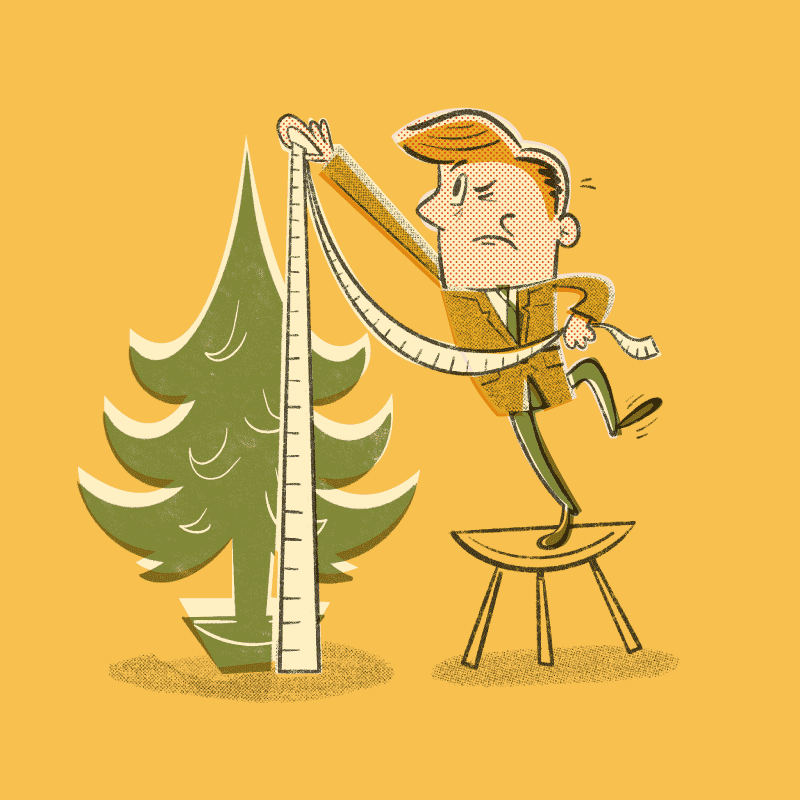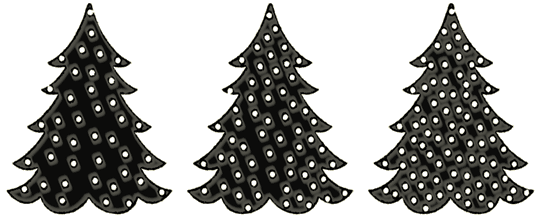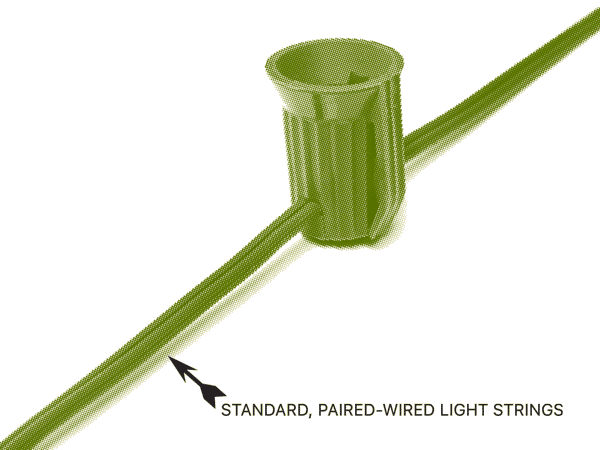
HOW MANY LIGHTS DO I NEED?
We offer some insight for your tree and other common uses for our lights.
How many lights you might need is a complex question depending on where you'll be using them and the answer depends largely on personal taste. Here are some tips that may help you decide how many lights you will need.

- For low density: Height of Tree × Diameter of Tree at Base × 4
- For medium density: Height of Tree × Diameter of Tree at Base × 5
- For high density: Height of Tree × Diameter of Tree at Base × 6
EXAMPLE: If your tree is 6.5 feet tall and is 3.5 feet wide at the bottom of the tree (it's diameter), your various density calculations would look as follows:
- For low density: 6.5 feet × 3.5 × 4 = 91 bulbs
- For medium density: 6.5 feet × 3.5 × 5 = 114 bulbs
- For high density: 6.5 feet × 3.5 × 6 = 137 bulbs
- First, calculate the total linear feet of string you will need by measuring along each surface you intend to decorate.
- Tru-Tone Bulbs are sold in quantities of 25. Once you have determined how many bulbs you need, we recommend rounding up to the nearest multiple of 25. If you find you are only a few bulbs short, 5-Packs are available in all colors and color mixes.
- Tru-Tone Light Strings all have 12” spacing, so the number of bulbs you need is equal to the measured distance in feet if you are using our light strings. If your light strings have different socket spacing, read on.
- For spacing other than 12”, (such as 6” or 18”) simply convert your measured distance in feet to inches by multiplying by 12, then divide that number by the length of spacing to determine how many bulbs you will need (see our example below).
EXAMPLE: If you have 21 feet of roofline to decorate, and your light strings have 8” spacing, your calculations would look like this:
- First, convert 21 feet to inches: 21 x 12 = 252 inches
- Then, divide by the spacing of your sockets: 252 inches ÷ 8 inches = 31.5
- Finally, round up to the nearest whole number: 32 bulbs
- 12” spacing is most common for linear installations. With tighter spacing, the individual bulbs begin to lose some of their individuality, creating more of a solid line effect rather than individual points.
- Tru-Tone Light Strings have a decorative vintage style and are intended for use where they can be seen and appreciated. For longer runs and lights that will be seen from a distance such as rooflines and large outdoor trees, we recommend using standard, widely-available paired-wire light strings (illustrated below) that come in a variety of lengths and spacing, and can even be purchased on bulk spools. The fewer connection points you have, the less likely you are to encounter problems with poor connections, precipitation issues or shorting.






